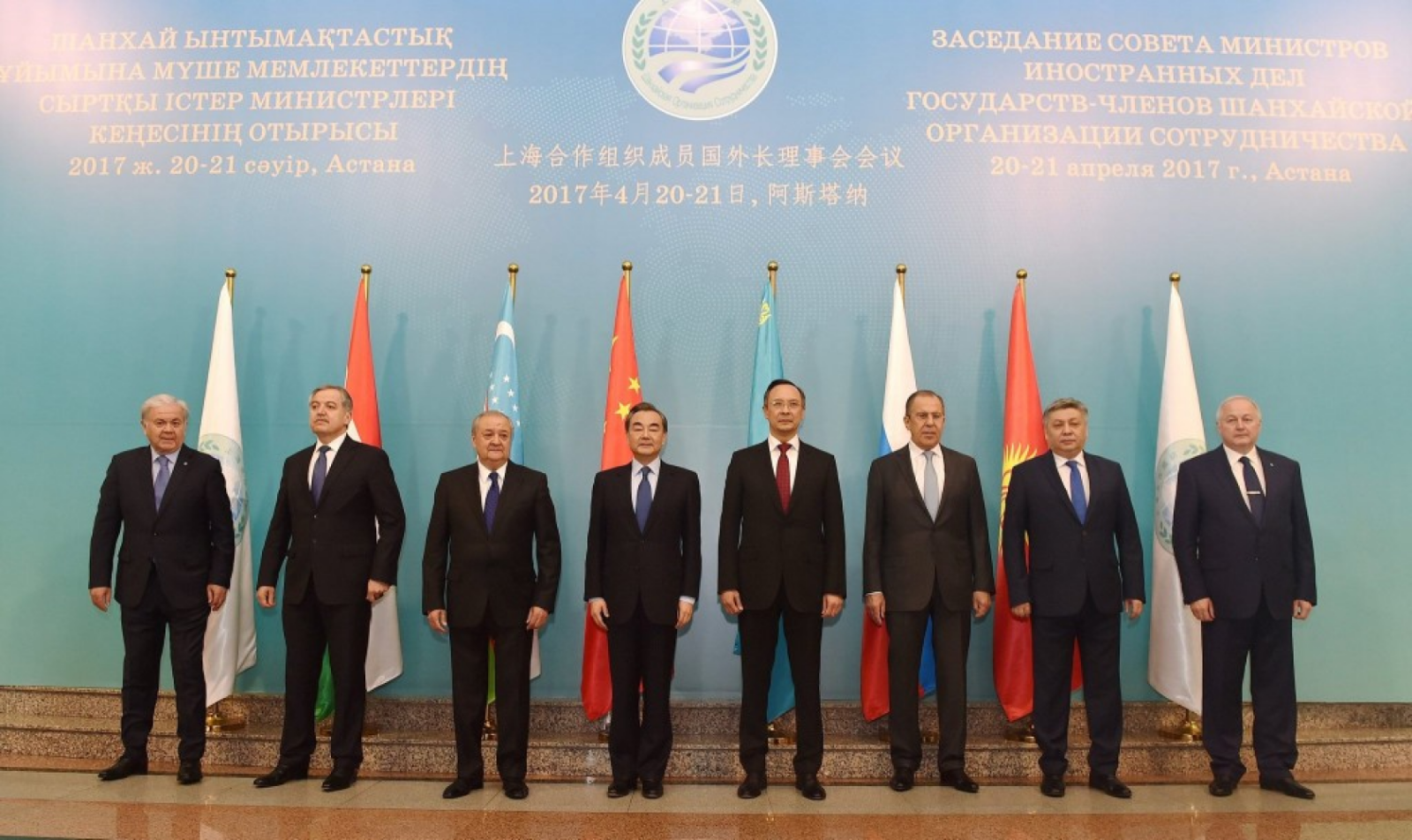
Foreign ministers of the Shanghai Cooperation Organization (SCO) meet in Astana, Kazakhstan, today.
Foreign ministers of the eight SCO members—China, Russia, India, Pakistan, Iran, Kazakhstan, Tajikistan, Kyrgyzstan and Uzbekistan—are attending the Kazakhstan-chaired meeting. They are expected to discuss strengthening multilateral economic, political, cultural and counter-terrorism cooperation.
Their main priority, however, will be to prepare for July’s SCO Heads of State Summit in which Chinese President Xi Jinping and Russian President Vladimir Putin are expected to attend and meet on the sidelines. The two have just met in Beijing, where Xi publicly embraced his Russian counterpart to demonstrate their close relationship.
The China-led SCO focuses on strengthening economic and security cooperation with states in and around Central Asia. Together with the BRICS grouping, it is part of Beijing’s ambitions in enhancing its global leadership among developing countries and in opposing US-led multilateral efforts, including the G7 and NATO. The SCO is also an important political organization to support China’s economic endeavors in the region, mainly through the Belt and Road Initiative.
Despite the SCO’s grand ambitions, it has so far mainly served as an international stage for China and, since the beginning of Russia’s invasion of Ukraine, for Moscow demonstrate its ongoing international clout despite Western sanctions. India—the grouping’s largest economy after China—has refused being drawn into anti-Western rhetoric and initiatives. As such, the SCO’s focus will likely remain on Beijing’s efforts in further strengthening its international leadership role.
David is a Senior Analyst focusing on East Asia. He primarily writes on economic, political, and social issues and how they relate to the geopolitical environment.

